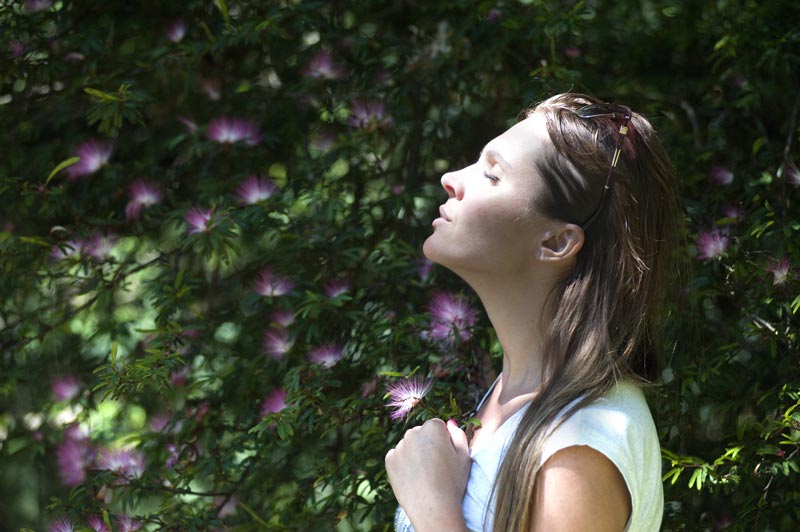A friend of mine was taking her teenage daughter to the doctor—and running very late. With her daughter in the seat beside her, my friend was in full road-rage mode, clutching the wheel like a madwoman, cursing at other drivers, garbage trucks and slow traffic lights.
In truth, my friend had created the stress herself. She and her daughter could have left the house in plenty of time, but my friend decided to make one extra phone call before she left, something she could cross off her to-do list. The call, of course, took much longer than she expected.
Her teenage daughter, seeing her rage behind the wheel, said to her, “You need to give yourself more space cushions.”
My friend had never heard the term space cushion, but she immediately understood what her daughter meant. A space cushion is the presence of a few minutes for just being. To create one, you need to resist the urge to cram in just one more thing. In my friend’s case, a space cushion would have allowed her to enjoy the ride with her daughter, and be a little more focused when they reached the doctor’s office. Who couldn’t use more space cushions throughout their day?
But creating a space cushion means that you have to remember to pause. And hitting the pause button is far from easy. Many of us, myself included, have an addiction to doing. The day often seems like a race to get the most things done, to check everything off the list.
When you have a child with special needs, it seems even more impossible to create a space cushion. There are always more things to do than there are hours in the day. But even more than that, it is easy to feel like you don’t deserve the extra time. First of all, you can feel overrun by a list of shoulds —the things you would be doing for your child if you were a “truly good parent.” This might include researching the newest therapy or spending even more time engaging with your child in a constructive way. It is so easy to beat yourself up for all those times you missed the mark, by not doing enough or by losing your temper in the heat of a stressful moment. Either way, guilt can make you feel like you don’t deserve a space cushion.
But this only points out just how much a space cushion could benefit you. Your well-being matters a lot more than a to-do list and when you are more centered, your child is the one who benefits.
When I remember to create a space cushion, I don’t know how I managed without it. It is like experiencing the sunshine after days of rain, a sense of nourishment that I need, but can easily forget.
Here are some ideas for creating more space cushions. This is far from an exhaustive list:
- Put yourself on the to-do list.
Try to put yourself on your daily schedule. If you schedule even ten minutes between one task and next, you are protecting this time for you. Getting on your own to-do list doesn’t happen by itself. It takes a real intention, and it is an important stance you can take about the importance of self-care. - Create a space cushion of silence.
Silence is becoming an increasing luxury, difficult to find in our plugged-in world. The next time you are in the car by yourself, try turning off the radio. If you dare to take it a step further, put your phone on silent. Having a place of quiet can feel incredibly powerful and nourishing. - Take your physical and emotional pulse.
Before rushing off to do the next thing, see if you can give yourself even a few minutes to take stock of how your are doing. Get into a relaxed position and bring your attention to your body breathing in and out. Notice whatever calls your attention. Physical sensations, emotions, or thoughts may come into focus. Allow them to come to your awareness without holding on to them or pushing them away. Whatever arises, just label what is going on without having to fix it or judging yourself. Simply being where you are can feel very centering. - Go outside.
Even ten minutes of moving around and breathing some fresh air can give you a fresh perspective. - Take ten minutes to close your eyes.
I realize there is a risk here of falling asleep. (And that would certainly be a sign that you need more sleep.) But if you can take a set amount of time to sit with your eyes closed, listening to music, or breathing and checking in with your body, you can feel surprisingly refreshed, and move on to your next activity with a little more presence.
Space cushions needn’t take more than five or ten minutes. But clearing that time for yourself can halt that almost addictive process of doing. It helps you feel more connected to yourself, which benefits everyone around you. It can be just the thing you need so that you are not just surviving, but thriving.

